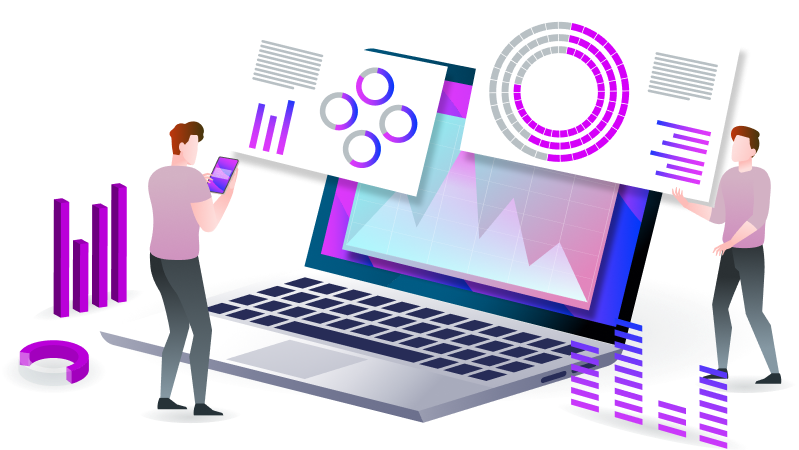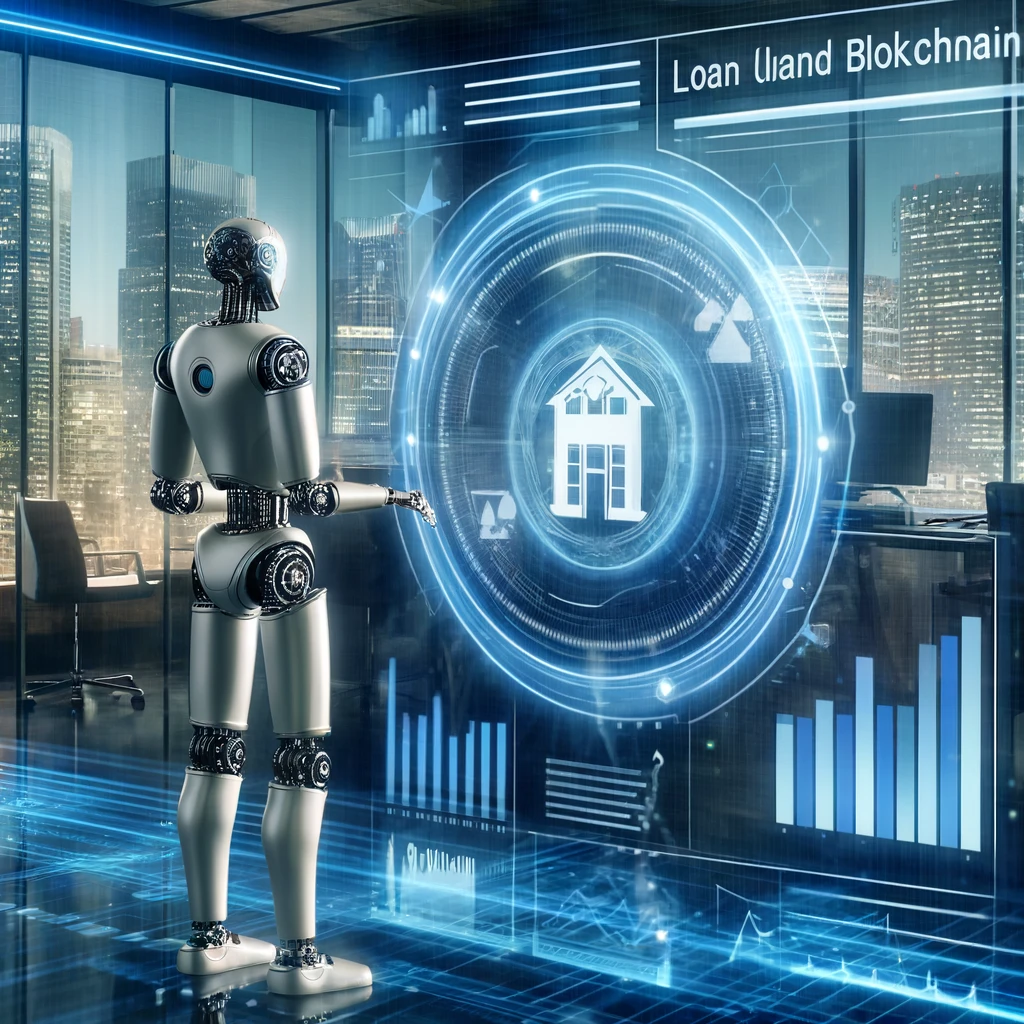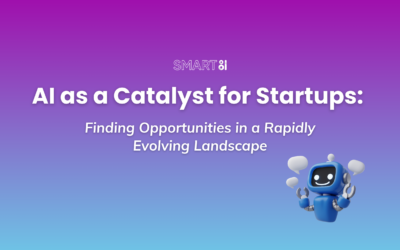The financial technology (fintech) landscape is witnessing an unprecedented evolution as it embraces two of the most disruptive technologies of the 21st century: Artificial Intelligence (AI) and Blockchain. Both technologies have made indelible marks on their own, but their convergence is now set to redefine the future of finance. This integration promises to enhance the efficiency, security, and inclusivity of financial services, while also fostering innovation at a scale previously unimaginable.
AI and Blockchain: Uniting Forces to Reshape Fintech Innovations
Artificial Intelligence (AI) encompasses the development of computer systems capable of performing tasks that would typically require human intelligence. These tasks include visual perception, speech recognition, decision-making, and language translation. AI systems are designed to think like humans and mimic their actions, but they can also exceed human capabilities by processing large sets of data at speeds unattainable by humans. For instance, in visual perception, AI can identify patterns and images with greater accuracy and less bias than human observers. In the realm of decision-making, AI algorithms can analyze past data to predict future outcomes, making them invaluable for applications ranging from financial forecasting to medical diagnosis.
Blockchain technology serves as a fundamentally different kind of database or ledger that is maintained across several nodes in a computer network, rather than being stored in a single location. This distributed nature of blockchain is key to its ability to secure data, making the history of any digital asset unalterable and transparent through decentralization and cryptographic hashing. A simple analogy for understanding blockchain technology is a Google Doc that is shared among a group of people, where each participant has real-time access to the same document. No single user controls the document; it is a collaborative effort with a clear, auditable history of changes. In financial applications, blockchain’s capabilities make it exceptionally useful for ensuring the integrity and security of data records. Each transaction is recorded with an immutable cryptographic signature called a hash, which prevents tampering and fraud.
AI in Fraud Detection and Risk Management
One of the primary applications of AI in fintech is in fraud detection. By leveraging complex algorithms and machine learning models, AI systems can sift through millions of transactions in real-time to identify patterns and anomalies that suggest fraudulent activity. This proactive approach allows financial institutions to flag and halt suspicious transactions instantly, significantly mitigating the risk of financial loss.
AI also plays a crucial role in risk management. Through predictive analytics, AI systems can forecast future trends based on historical data, enabling institutions to assess and manage various financial risks more effectively. For instance, AI can predict credit defaults, market fluctuations, and even cyber threats, allowing companies to strategize preemptive measures.
Blockchain: Reinventing Fintech with Transparency and Security
Blockchain technology has been instrumental in reshaping financial services by enhancing transparency and reducing fraud. Blockchain’s potential extends beyond cryptocurrency; its ability to provide secure, transparent, and immutable transactions makes it ideal for everything from international money transfers to ‘smart contracts’ which automatically execute transactions when certain conditions are met.
The Synergy of AI and Blockchain: Pioneering the Future of Financial Services
The intersection of AI and Blockchain in fintech innovations lies in their ability to complement each other’s capabilities, leading to enhanced security, efficiency, and reliability of financial services.
Blockchain’s immutable ledger combined with AI’s predictive capabilities creates a robust security framework for financial transactions. AI can detect potential security threats at an early stage by analyzing transaction patterns and flagging anomalies. Once identified, these transactions can be recorded on a blockchain, ensuring that the record cannot be altered retrospectively, thus preventing fraud.
Boosting Efficiency: AI and Blockchain Revolutionize Fintech Operations
Artificial Intelligence (AI) holds the key to significantly enhancing the efficiency of blockchain operations, by improving the speed and accuracy of data processing and verification. This is particularly critical in environments where blockchain technology underpins complex transactions and contracts, which require not only robust security but also swift processing to maintain efficiency and user satisfaction.
For example, one of the standout applications of AI in blockchain is in the realm of smart contracts. Smart contracts are self-executing contracts with the terms of the agreement directly written into code. While blockchain ensures that these contracts are immutable and transparent, AI can greatly enhance their functionality by automating and optimizing the conditions under which these contracts are executed. This involves AI algorithms learning from vast datasets to predict outcomes, identify optimal conditions, and automatically adjust parameters in real time, without human oversight.
Furthermore, AI can facilitate more complex decision-making processes embedded within smart contracts. By integrating machine learning models, these contracts can dynamically respond to changing conditions in a way that mimics human decision-making but with greater speed and accuracy. For instance, in financial services, an AI-enhanced smart contract could automatically adjust interest rates on loans or credit based on real-time economic changes, customer credit scores, and market conditions, all recorded on the blockchain.
Compliance Made Easy: AI and Blockchain Transforming Regulatory Landscape in Finance

Regulatory compliance remains one of the most formidable challenges in the finance sector. Ensuring adherence to laws and regulations is not only complex due to the varying and ever-changing nature of legal frameworks across different jurisdictions, but it is also critical to maintain trust and integrity within the financial system. Artificial Intelligence (AI) offers a powerful tool for managing these challenges more effectively by automating and enhancing the processes involved in compliance.
AI technologies can facilitate the automation of data extraction from blockchain systems, where transaction records are immutable and transparent. By leveraging AI, financial institutions can continuously monitor blockchain transactions in real-time to ensure all activities comply with regulatory standards. This capability is particularly valuable for anti-money laundering (AML) and know-your-customer (KYC) regulations, which require meticulous verification and monitoring of customer activities.
Furthermore, AI can significantly enhance the analysis of blockchain-stored data. Advanced machine learning models can be trained to identify patterns and anomalies that may indicate non-compliant behavior or other regulatory issues. This level of analysis extends beyond simple transaction monitoring to provide a deeper understanding of the data, helping institutions not only react to potential compliance issues but also predict them before they arise.
Streamlining Payments: AI and Blockchain Powering Faster and More Secure Transactions

By integrating AI with blockchain technology, fintech firms are poised to transform the landscape of payment solutions significantly. This integration enables the creation of faster, more secure, and highly efficient payment systems. AI plays a critical role in this synergy by enhancing the operational capabilities of blockchain-based payment systems. It accelerates the verification process for transactions, which is crucial in environments that handle high volumes of transactions simultaneously. This rapid verification is essential in reducing bottlenecks that traditionally slow down payment processing, thus enabling real-time or near-real-time transaction processing.
Moreover, AI contributes to these systems by employing advanced algorithms to detect anomalies and potential fraud in transaction patterns. This preemptive detection is vital for preventing fraudulent activities before they can affect the system, thereby enhancing the overall security of the transactions.
Personalized Banking Redefined: AI and Blockchain Deliver Tailor-Made Financial Services

AI and blockchain are poised to radically transform traditional banking by enabling the provision of highly personalized financial services. AI excels in analyzing vast datasets quickly and with great accuracy. This capability allows banks to delve deep into individual customer profiles, examining patterns in spending, savings, and financial behaviors. From this analysis, AI can generate insights that enable banks to design financial products tailored specifically to each customer’s unique needs and preferences.
Blockchain technology complements these AI capabilities by providing a secure and immutable record of all transactions. This ensures that customer data is not only accurate but also protected from tampering and fraud. The integration of blockchain thus enhances customer trust in how their data is handled and stored.
The combined strengths of AI and blockchain facilitate a range of customized banking services. For instance, based on a customer’s financial history and current financial behavior, AI can recommend specific types of savings accounts or investment plans that offer the best potential returns. Furthermore, blockchain can securely manage the execution of these services, ensuring that all contractual obligations are transparent and automatically enforced.
Enhanced Lending: AI and Blockchain Disrupting the Loan Industry
The integration of AI and blockchain can revolutionize lending by making it more accessible and less prone to fraud. AI algorithms can assess a borrower’s risk profile more accurately using data from blockchain-verified transactions, leading to better credit decisions.
As these technologies mature, we can expect their integration to deepen, leading to more sophisticated applications in fintech. The possibilities are vast—from democratizing finance by making it accessible to underserved populations, to creating completely autonomous banks operated by AI and secured by blockchain.
Conclusion
The intersection of AI and Blockchain represents a frontier in fintech that holds tremendous potential to transform how financial services are delivered and consumed. It promises not only greater efficiency and security but also the democratization of access to financial services. As we move forward, the synergy between AI and blockchain in fintech will undoubtedly unveil new innovations that will continue to shape the financial landscape of tomorrow.
Smart81: A Case Study in AI and Blockchain Integration

Smart81 is a pioneering IT outsourcing company platform that exemplifies the successful integration of AI and blockchain technologies. By utilizing AI, Smart81 can analyze user behavior and transaction data in real-time, offering personalized financial advice and identifying investment opportunities tailored to individual profiles. Simultaneously, the platform employs blockchain technology to ensure that all transactions are recorded securely and transparently, significantly reducing the risk of fraud and enhancing trust among users. This dual-technology approach not only streamlines financial operations but also provides a scalable model for the future of automated and secure fintech services, setting a benchmark for innovation in the financial sector.







